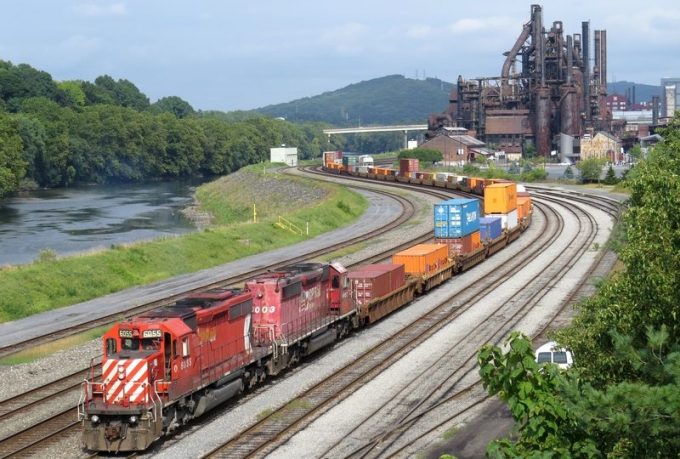Up to $1.5m fee for every Chinese-built box ship calling at a US port
Following its investigation into what it concluded was unfair Chinese state support of maritime supply ...

Canadian Pacific Railway (CP) is in for a bumpy ride: 3,000 employees have voted for a strike, to begin as early as 16 March, while rival Canadian National (CN) and various interest groups are calling on the US Surface Transportation Board (STB) to impose conditions on the merger of CP with fellow Class I carrier Kansas City Southern (KCS).
According to the Teamsters Canadian Rail Conference (TCRC), which represents some 3,000 conductors, engineers and train and yard personnel at CP, 96.7% ...
Asia-USEC shippers to lose 42% capacity in a surge of blanked sailings
USTR fees will lead to 'complete destabilisation' of container shipping alliances
New USTR port fees threaten shipping and global supply chains, says Cosco
Outlook for container shipping 'more uncertain now than at the onset of Covid'
Transpac container service closures mount
DHL Express suspends non-de minimis B2C parcels to US consumers
Zim ordered to pay Samsung $3.7m for 'wrongful' D&D charges
Flexport lawsuit an 'undifferentiated mass of gibberish', claims Freightmate

Comment on this article